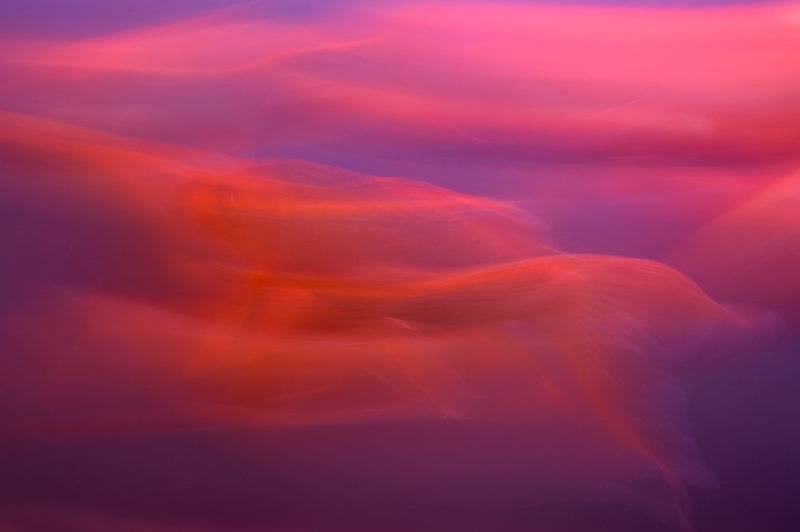Following a recent post on using mobile phone camera for photography (Phone camera for photography), I was asked a very pertinent question. Why do I use a DSLR if every camera can give good results?
I’ll start by first clarifying what a DSLR is. SLR stands for Single Lens Reflex. There is a mirror inside the camera which lets one see exactly what the film is going to ‘see’ through the lens. There is a single lens for viewing the image and for capturing it. Digital versions of these cameras are called DSLRs. They are larges than usual compact cameras and phones, heavier, with detachable lenses and comparably better electronics than most compacts and phones.

(Swirls of colors. Nikon Df with Nikkor 50mm, f/6.3 at 0.77 sec)
Some of the reasons why I use a DSLR-
- I am used to heavy cameras and somehow I can hold them steady at low shutter speeds.
- The view in the optical viewfinder and through the lens is reassuring. I can see the exact bokeh, focus and depth of field which is missing in other camera types. Yes, I am old school and I still use the ‘Depth of Field Preview’ button.
- The camera gives me option to save images as raw. This is useful in post-processing. (Post Processing RAW)
- All the settings that I frequently access are located comfortably on the camera body. They have their dedicated buttons, knobs or rings. It is easy to instantly set them as I want them to be without wasting time, digging into the menus.
- The full frame (35mm film size) or crop sensors are larger than most compact cameras and mobile cameras and therefore are capable of giving shallow depth of field when required. Large sensors also mean low noise per pixel if everything else including pixel count is kept constant.
- I can choose which lens I want to use for my photographs. The optical quality is also superior to most other lenses found in compact cameras and phone cameras.
- I find comfort in the fact that I am holding a capable piece of equipment that can produce excellent photographs. It also reminds me that the limiting factor in this equation is me as a photographer.
- A large enough picture size also permits me to crop the image if required without compromising the image quality. I occasionally print large size images which also get viewed from closer than normal viewing distances.
- It makes financial prudence to buy a camera body only when I already have the lenses and to buy lenses when I have the camera body. I have been in this cycle since the time I got my first SLR body and a lens.
If I had the money, I too would have gone for a much smaller Leica rangefinder which provides almost all the above features. Medium format cameras with waist level viewfinders are also an interesting choice but for the cost.
Mirrorless are not my cup of tea, at least for now. I do not like the electronic view finder. The view from the electronic viewfinder does not look real and somehow disconnects me from photography. Small things like twinkle in the eye, small stars in a wideangle, shimmering of water are not displayed well in electronic viewfinders or real-time in preview screens. I also like to observe the world around me through my camera. If I do this on a mirrorless, the battery won’t last very long. So the mirrorless are not for me.
I again repeat, good photographs are made by people behind the camera. Camera is just a tool. It is just that I like to use tools more suited to my use, so that they do not become a limiting factor in my quest for great images.
Further reading:
Walking around with a heavy camera

Hi Shivam, nice reading. What are your views about mirrorless cameras and can they now or in near future give the dslr’s some reason for sweating by being compact with image quality?
LikeLike
Mirrorless are very capable cameras in small size. Like I always say, a camera is as good as the photographer. Technically, I prefer DSLRs for their optical viewfinder, available assortment of lenses and accessories. DSLRs feel more balanced in my hands and so I find them comfortable to use.
Earlier mirrorless cameras also suffered with short battery life, slow autofocus due to absence of phase detection and durability, but this no longer the case. Bringing the lens closer to the sensor by removing the mirror increased the sharpness but at the cost of light fall off at the corners. It is also difficult to use large sensors when the lens is very close, since sensors prefer light falling on them head-on. All said and done, mirrorless cameras are fun cameras but I do not find them well-suited for my use.
LikeLike